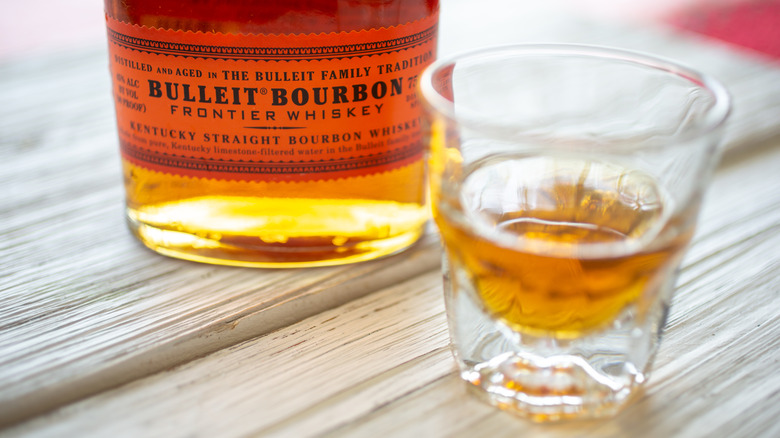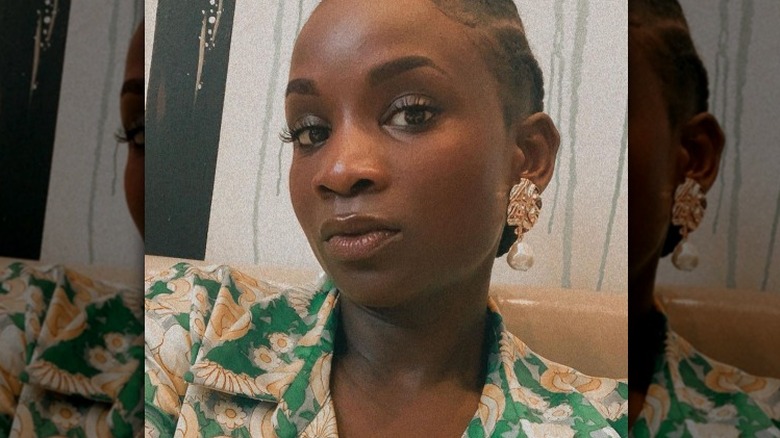Why The First Black Blender Of Award-Winning Bourbon Just Launched A Lawsuit
The American whiskey industry is booming with $4.5 billion in annual sales, doubling its revenue since 2012, according to The New York Times. To meet demand and create a more diverse workplace, many distilleries have increased their workforce to include women and people of color in an industry that has been dominated by older white men. When Eboni Majors became the first Black blender at the Bulleit distillery in Shelbyville, Kentucky, it seemed that things were going in the right direction, but Majors alleges that she dealt with racial discrimination, unequal pay, and a hostile work environment behind the scenes.
Diageo, the London-based company that owns the Bulleit distillery, has been recognized multiple times as an inclusive workplace for diverse female managers, per Cision. However, at the Kentucky distillery that employs workers from a rural and predominantly white population, Majors was a minority.
In a court filing, Major revealed that she endured comments from one employee about her changing hairstyles, calling her "poufy head" and asking what happened to her dreadlocks. During the moment when national monuments were under scrutiny and being taken down, Major overheard a co-worker say, "Blacks should get over the statues," and also noted a racial slur against Jewish people written on a conference room whiteboard. Despite her complaints filed with supervisors and the company's human resources department, Majors felt that the issues were not handled sufficiently by any means.
Eboni Majors files suit over a hostile and unequal work environment
When Eboni Majors approached upper management regarding the racially-charged comments she had heard while at work, she was told to either return the negative comments or ignore them (via The New York Times). Diageo did set up diversity training per her request, but as noted in her lawsuit filing, the training session was for upper management and not the hourly employees responsible for most of the racially biased commentary.
As the first Black whiskey blender who created an award-winning bourbon for Bulleit Distillery, Majors became the face of the spirit she made through marketing campaigns and national tours. Despite a sales increase of about 30% from the marketing and advertising campaign that prominently featured Majors, she was not compensated for overtime accrued during travel or paid a talent fee for her extra job duties. After receiving a promotion, she also learned that she was compensated at a lower rate than Diageo's white employees.
Majors claims that she went on to endure inadequate responses and verbal hostility from management regarding her claims of unequal compensation levels and a hostile work environment. After filing the lawsuit and developing hypertension, Majors felt forced out of the workplace and resigned.

